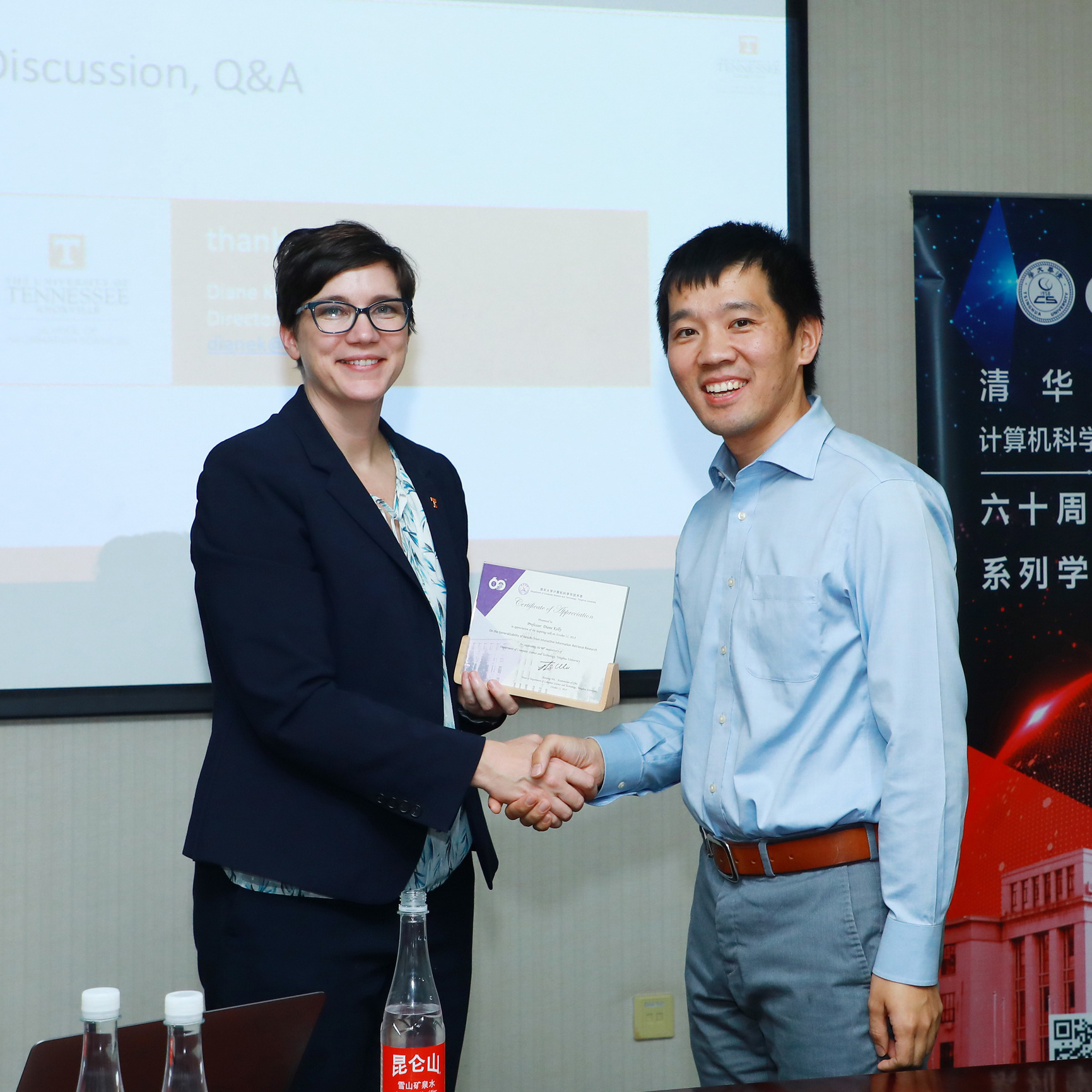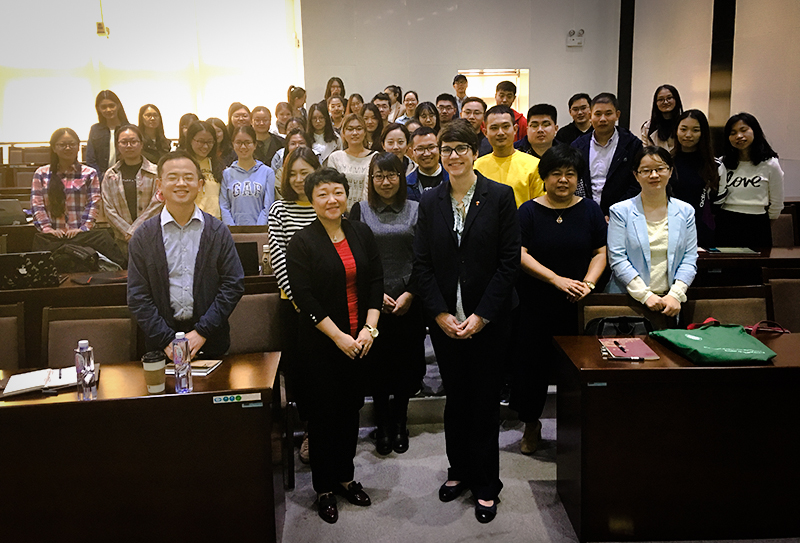SIS Director Kelly’s Speaking Tour in China

In the spirit of advancing cross-cultural research collaborations, SIS Director Diane Kelly toured Beijing, China last week and was a featured speaker at several academic institutions and China’s largest online retailer. She shared her expertise on interactive information search and retrieval, information search behavior, and research methods.
Her talk “On the Generalizability of Results from Interactive Information Retrieval Research” focused on reasons why it can be difficult to use results from one research study to make predictions about what will happen in another research study.
“As the chair of the Association for Computing Machinery’s special interest group (SIGIR) in information retrieval it is was exciting to not only share my thoughts about the generalizability of research results, but also to share some of SIGIR’s initiatives regarding replicability and reproducibility of research.” SIGIR, established in 1963, is the largest and oldest professional society dedicated to information search and access technologies.
Tsinghua University Computer Science Department Professor Yiqun Liu served as Director Kelly’s main host, where Kelly gave a talk as part of a series celebrating the 60-year anniversary of the department.
Throughout the remainder of the week, she went on to speak at several other institutions and organizations, including Peking University, Chinese Academy of Sciences, Renmin University, Nankai University (Tianjin), and Beijing Normal University.
On her last day in China, Kelly presented to the search, recommendation and data sciences team at JD.com, also known as Jingdong, which serves more than one billion people and is the largest online retailer in China. They also specialize in building platforms in eCommerce, logistics, internet finance, cloud computing, and smart technology.
The most valuable part of this trip was the opportunity to build bridges and strengthen relationships with colleagues working in China, according to Director Kelly.
“Working with researchers from other places and cultures is a great way to realize that ‘objective’ knowledge is often a reflection of a particular worldview, rather than a universal truth. It is also one of the best ways to test the fitness of one’s ideas, which often have a great deal of cultural assumptions built-in.”
Explore more pictures of Director Kelly’s trip to China by visiting our Facebook album.
